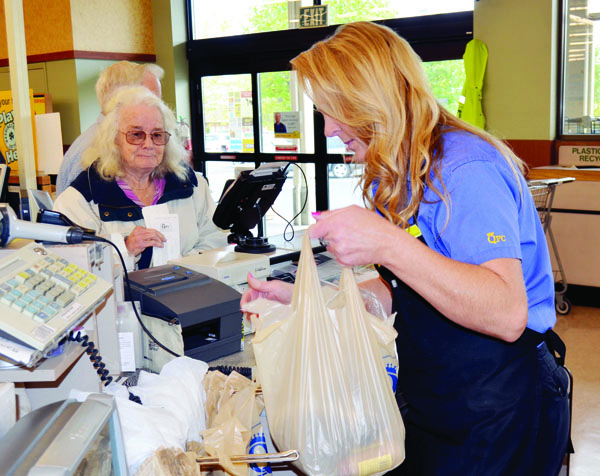PORT TOWNSEND — A ban on single-use plastic bags will take effect in two weeks, forbidding stores to use the bags that ban supporters said are harmful to the environment.
The ban begins Nov. 1, at which time stores will be required to supply paper bags to customers and charge 5 cents for each bag, which will be used to defray the cost of the bags.
The ban, which was approved by the City Council on July 2, made Port Townsend the sixth Washington city to pass a similar ordinance, after Bainbridge Island, Bellingham, Edmonds, Issaquah, Mukilteo and Seattle.
While paper bags will be supplied, the intent is to encourage customers to bring in their own reusable bags while shopping, according to supporters.
As part of this effort, the City Council in September approved the purchase of 10,000 reusable bags that were to be used to promote the initiative.
But the proposal was shelved when the state Auditor’s Office ruled that lodging tax revenues could not be used to purchase the reusable bags.
Safeway and QFC, the two large grocery stores in the city limit, are preparing for the switch.
QFC will transfer its remaining stock of plastic bags to its Port Hadlock store, according to a store employee.
Safeway employees are being trained on the new law this week.
Policies of both stores do not allow local employees to be quoted. Both QFC and Safeway have dealt with the transition in Seattle, where bags were banned in July.
The forbidden bags fall within specific limits: single-use plastic bags with handles that are thinner than 2.25 mils.
A mil is 1/1,000th of an inch.
Stores instead will provide standard-sized paper shopping bags, with or without handles, with each store required to assess the 5-cent-per-bag “pass through charge” to the customer.
Stores won’t be allowed to provide free standard-sized paper shopping bags, though paper bags of other sizes are not affected by the rule. The rule is meant to encourage people to bring their own reusable bags.
Produce bags are allowed, as are those used to deliver newspapers and protect dry cleaning.
The banned plastic bags, if brought by customers, can be considered reusable bags.
Merchants also are required to assess the bag charge because a store that does not charge for the bags will have an unfair advantage, officials said.
The store will keep the paper-bag fee to defray the cost of providing the bags.
Jefferson County Reporter Charlie Bermant can be reached at 360-385-2335 or at charlie.bermant@peninsuladailynews.com.

